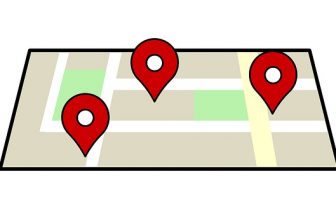「壊す」|「break」「damage」「destroy」「smash」の違いと使い方
日本語の「壊す」はものに力を加えて、本来の形をくずし使えなくすること。
英語で「壊す」はその対象や壊し方でいくつかの語を使い分ける。
「壊す」|「break」は最も一般的な語
「break」は物に力を加えて2つ以上の断片にすることを表す最も一般的な語。
固い食べ物に注意。
That dried meat was as hard as stone. I thought I’d break a tooth.
「その干し肉は石のように固かった。歯が折れるかと思いました」
凧あげのとき、
I pulled the thread too hard and it broke.
「強く引っ張りすぎて糸が切れてしまった」
※ thread「糸」
春の花見で、
Don’t break branches off the trees.
「木の枝を折ってはいけません」
※ branch「枝」
「壊す」|「damage」は価値を落とす、悪影響を与える
「damage」は物に物理的な力を加えてその価値をおとしめること、また健康、器官組織、環境などに悪影響を与えることをいう時に使う語。
台風の被害がいろいろ。
The typhoon damaged the roof of our house.
「台風で我が家の屋根が傷んでしまった」
洪水もある。
The greater part of the area has been damaged by flooding.
「その地域の大部分が洪水の被害を受けました」
農家の被害。
The typhoon seriously damaged crops in the areas.
「その地域は台風で農作物に大きな被害を被った」
健康問題。
Smoking greatly damages your health.
「タバコは著しく健康を害します」
働き過ぎに注意。
He damaged his health through overwork.
「彼は過労で健康を害してしまった」
「壊す」|「destroy」は完全破壊
「destroy」は都市、建造物、森林などを完全に破壊して存在や機能ができなくすることを表すときに使う語。
火の用心が大切。
The main building was completely destroyed by fire.
「火事で母屋が全焼してしまった」
地震も恐ろしい。
The city was completely destroyed by a big earthquake.
「大震災でその市は壊滅した」
作物の被害。
The strawberry farm was completely destroyed by the typhoon.
「台風でそのイチゴ農園は壊滅状態です」
「壊す」|「smash」は
「smash」は物などを大きな力で乱暴に壊すこと。壊すとき音を立てる場合もある。
He was smashing stones with a hammer at the construction site.
「彼はその工事現場で、ハンマーで石を打ち砕いていた」
The culprit smash a vase into pieces in the room.
「犯人はその部屋で花瓶を粉々に砕いたのだ」
※ culprit「犯人」
安全運転を心がけよう。
The front of the car got smashed in a crash.
「衝突で車の前の部分がぺちゃんこになった」











